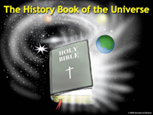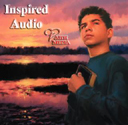|
______________________________________ Michael T. Powers On a cold winter night who of us is not tempted to go to the living room and stoke up a fire in the fireplace and read a book in front of the crackling hearth? You may be thinking "I am doing myself a favor by supplementing the furnace with additional heat". But the dark secret about your fireplace is, you are making your house colder, and making your heating bill rise. Using a fireplace each night can actually raise your monthly heating bill by about 20%.*
The air action that a fireplace starts in your home is wasteful. The second the damper is opened, heated air from your homes interior begins pouring out of the top of the chimney. As the fire in the hearth accelerates, the combustion process grabs more heated air from your home and burns the oxygen and combustible gasses in it and tosses it up the chimney. While the fire burns and exhausts most of the heat straight up the chimney, the home is drawing in cold outside air from other places (i.e. windows, light sockets, doors, etc) to replace the air that is escaping the home. Hearth professionals refer to this as the "stack effect".
Even while the fireplace is not being used, the traditional metal dampers tend to leak air since they warp and degrade rapidly in the extreme heat and corrosive soot environment. The cold draft that comes out of a fireplace is an indicator that the damper is not sealing well. To correct this problem, I recommend a removable and reusable fireplace accessory called a Chimney Balloon fireplace damper. The Chimney Balloon inflates into place in the flue and seals it off to stop heat loss, cold drafts, and chimney odors. They come in hundreds of standard and custom size combinations that can fit any fireplace flue or damper configuration.
Wood burning fireplaces are wonderful nostalgic centerpieces for many American homes. But a homeowner should be aware of the issues associated with fireplace use and keep them from being a home energy drain.
*Statistic gathered from WP&L Energy informational newsletter.
Which Holiday Is This?
by Rubel Shelly
Michelle asked the children in her class about the upcoming
Thanksgiving holiday. She thought it might be effective to inch toward its meaning by having them playfully correct some wrong ideas. "Now let me think," she began. "Thanksgiving. That's the day when
we think about all the stuff we have. And how we want more things than anybody else has. And how we don't care about anybody but ourselves. And . . ." "No!" the preschool kids were starting to chorus! "No-o-o!"
Then one little guy in the middle of the pack looked up and chirped,
"That's not Thanksgiving, Miss Michelle. That's Christmas!" Little children understand that there is something unique about
the fourth Thursday in November. As much as I love Christmas, its commercialism gone to seed leaves me feeling jaded at times. Our children still have Halloween candy in their mouths when the store windows and TV ads begin the Santa Shakedown. Thanksgiving has somehow escaped almost unscathed. Oh, the
florists may do a little extra business. And there are greeting cards for Thanksgiving. But the focus of the day is still generations gathered at a table. The traditional meal is pre-microwave. And, so far at least, there is no McTurkey or cranberry pizza. An essay by Walter Shapiro made this point several years back:
"In a nation where the mall never palls and seven-days-a-week shopping seems enshrined as a civic religion, Thanksgiving stands out as an oasis of tranquility and a reminder of the values that once tempered America's materialism. This Thursday give thanks for the one holiday that cannot be bought." Before you sit down to your loaded table this week, try to do something
that helps insure that a person or family whose year has been bleaker than yours will have a hearty Thanksgiving meal too. Then, when you finally do sit down to your own, don't feel guilty -- just blessed -- and bow with your dear ones to give God your sincere gratitude. As you get up from a table still heavy with leftovers, pray silently for God to make you sensitive to those whose hearts cry out for help. The blessings we celebrate will become a curse unless we receive them with grateful hearts and with a willingness to share. Rubel Shelly (c) 2008 Rubel Shelly. Used by permission. From Rubel Shelly's ______________________________________ Creation Q & A Q: Why do many Christians accept evolution? A: Unfortunately, many Christians--in fact, many pastors--accept some form of evolution and try to add it to the Bible. They say that God could have used evolutionary processes over millions of years to bring about plants, animals, and finally man. Many accept molecule-to-man evolution because they believe that science has "proven" that the earth is millions of years old, so they simply attach God to the process. But this view, called "theistic evolution," is actually destructive to the gospel message. Of course, this does not mean that people who believe in theistic evolution aren't Christians, since the Bible teaches that believing in and confessing Christ's death and resurrection is the key to salvation. However, they are being very inconsistent in their faith. The Bible clearly teaches that when God created Adam and Eve, the world was perfect (i.e., "very good"). There was no death and bloodshed. But because of the sin of Adam, God brought death as a judgment into the world. Of course, He also provided a means by which man could be reconciled to his Creator. But a Christian who believes in evolution over eons as told by evolutionists must also believe that God used death and bloodshed over millions of years as a way to bring man into existence. For them, the fossil record is not a sign of God's judgment in the Flood, but of the cruel nature of the world they believe God created. However, if death is not a result of the Fall, then why would God need to send His Son to save us from death? In this view, cancer, pain, and death would simply be part of the original plan. But thank God this is not the true history of the world. Death came into the world because of sin, but Christ came to the earth and died to save us from sin and death. There is no room for death before sin, and no room for the evolutionary myth in the Bible. For more information, see: The God of an Old Earth at: http://www.answersingenesis.org/creation/v21/i4/oldearth.asp
Click on the Bible above or visit the web site listed below! ___________________________________________
___________________________________________
|
 |
|
Touching Lives - One E-mail at a Time! Author Michael T. Powers - HeartTouchers @ aol.com
|
































